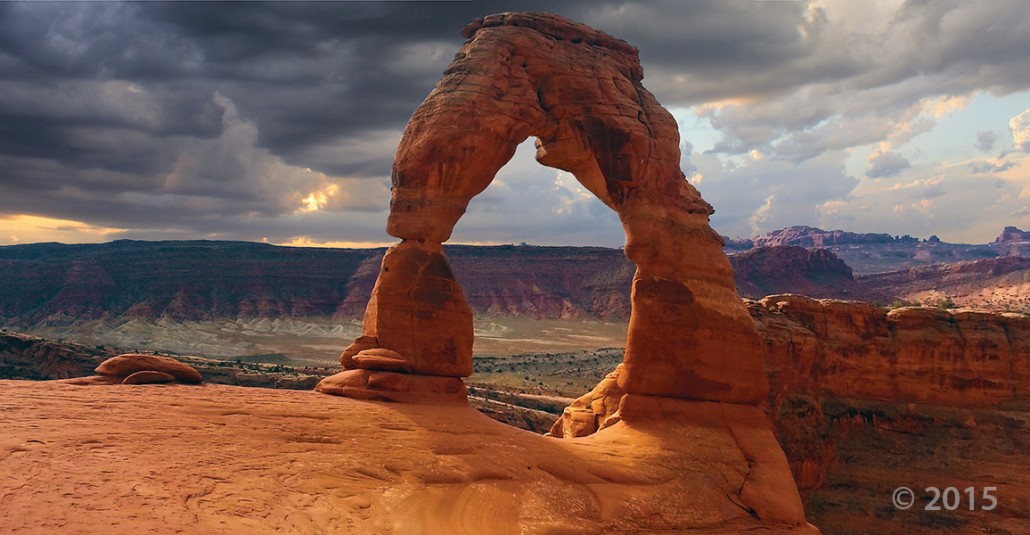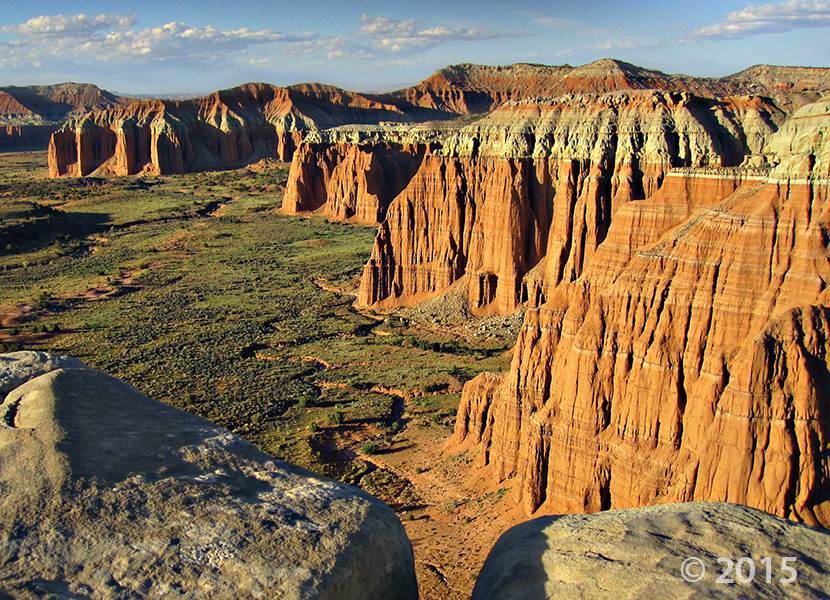Hoodoo consisting of Jurassic-age Entrada Sandstone, Devils Garden, Garfield County.
Photographer: Marshall Robinson © 2016.

Hoodoo consisting of Jurassic-age Entrada Sandstone, Devils Garden, Garfield County.
Photographer: Marshall Robinson © 2016.


Delicate Arch, Arches National Park, Grand County, Utah
Photographer: Marshall Robinson; © 2015
Delicate Arch, a 65-foot-tall natural arch in Arches National Park, Grand County, is composed of Jurassic-age sandstone including the Slick Rock Member of the Entrada Sandstone (base and pedestals) and Moab Member of the Curtis Formation (bridge).
Wishing our Tuesday was spent out there! The weather just gets nicer and nicer by the day. What Utah places do you want to explore this year?

Capitol Reef National Park, Wayne County, Utah
Photographer: Tyler Knudsen; © 2015
Fluted crimson walls of Jurassic-age Entrada Sandstone rim Cathedral Valley in the remote northern part of Capitol Reef National Park. The near-vertical Entrada walls owe their existence to the overlying white Curtis Formation that serves as a protective cap rock.
San Rafael Swell, Emery County, Utah
Photographer: Taylor Boden; © 2014
Erosion has exposed and sculpted Jurassic-age sedimentary rocks in the southern San Rafael Swell. Near Goblin Valley State Park, towering Wild Horse Butte comprises the Morrison and Summerville Formations (top cliff layers), Curtis Formation (middle slope layer), and Entrada Sandstone (bottom reddish layer).
Arches National Park, Grand County, Utah
Photographer: Gregg Beukelman; © 2014
Turret Arch viewed through North Window arch in The Windows Section of Arches National Park. The arches formed as the result of erosion through weak parts of sandstone fins composed of Jurassic-age Dewey Bridge Member of the Carmel Formation and Slick Rock Member of the Entrada Sandstone.
 Kodachrome Basin State Park, Kane County, Utah
Kodachrome Basin State Park, Kane County, Utah
Photographer: Carole McCalla
Sand pipe of Carmel Formation sediment intruded into the overlying Entrada Sandstone. One of the most photographed geologic formations in Utah if not the world, the Entrada Sandstone is the featured rock unit of Arches National Park, Goblin Valley State Park, Kodachrome Basin State Park, and parts of Glen Canyon National Recreation Area. Variations in the Entrada’s appearance across the state are due to differences in internal structure and composition as well as external stresses.
Temple of the Sun, Capitol Reef National Park, Wayne County, Utah
Photographer: Michael Vanden Berg
Two of Capitol Reef National Park’s popular attractions: Glass Mountain (foreground) and Temple of the Sun (background). Glass Mountain is a large exposed mound of selenite gypsum that formed within the Jurassic-aged Entrada Sandstone. The “gypsum plug” became exposed as the relatively soft Entrada Sandstone eroded away. Temple of the Sun is a large monolith that was also created by erosion of the Entrada Sandstone.
Capitol Reef National Park, Garfield County, Utah
Photographer: Paul Kuehne
The Waterpocket Fold affords a wonderful view of the geology of Grand Gulch. The Entrada Sandstone (reddish-orange rock on the right) and Navajo Sandstone (pale-orange rock on the left and middle distance) were formed in a desert environment beginning about 185 million years ago in the Jurassic Period.